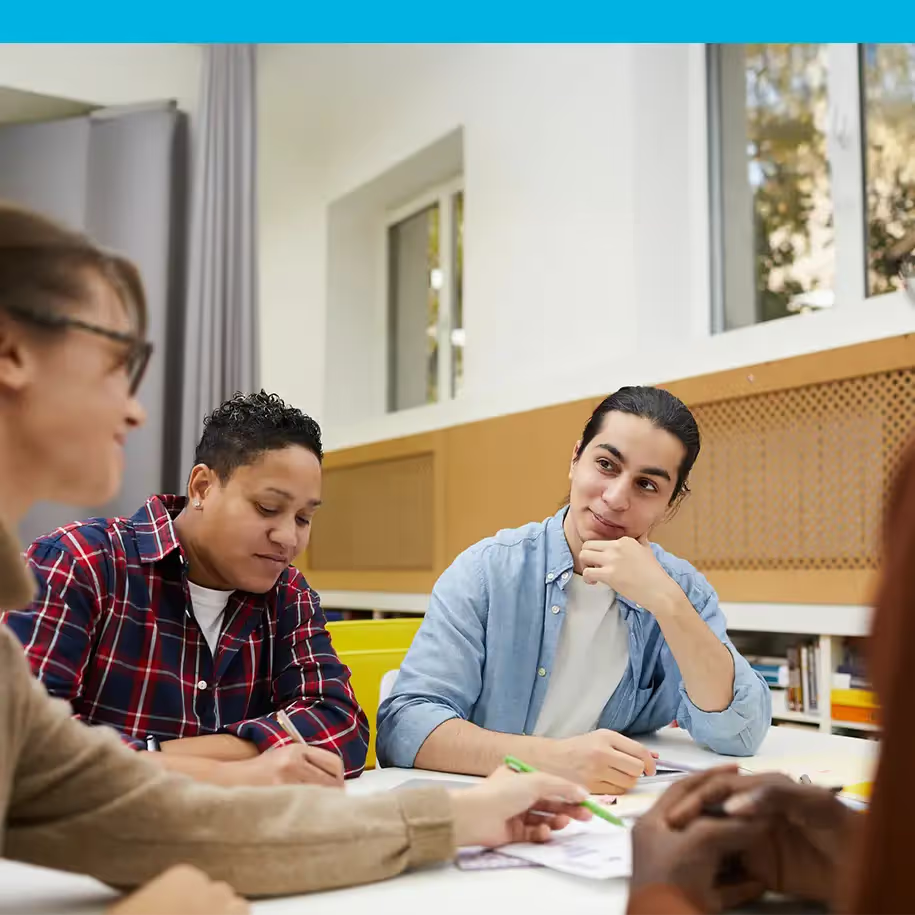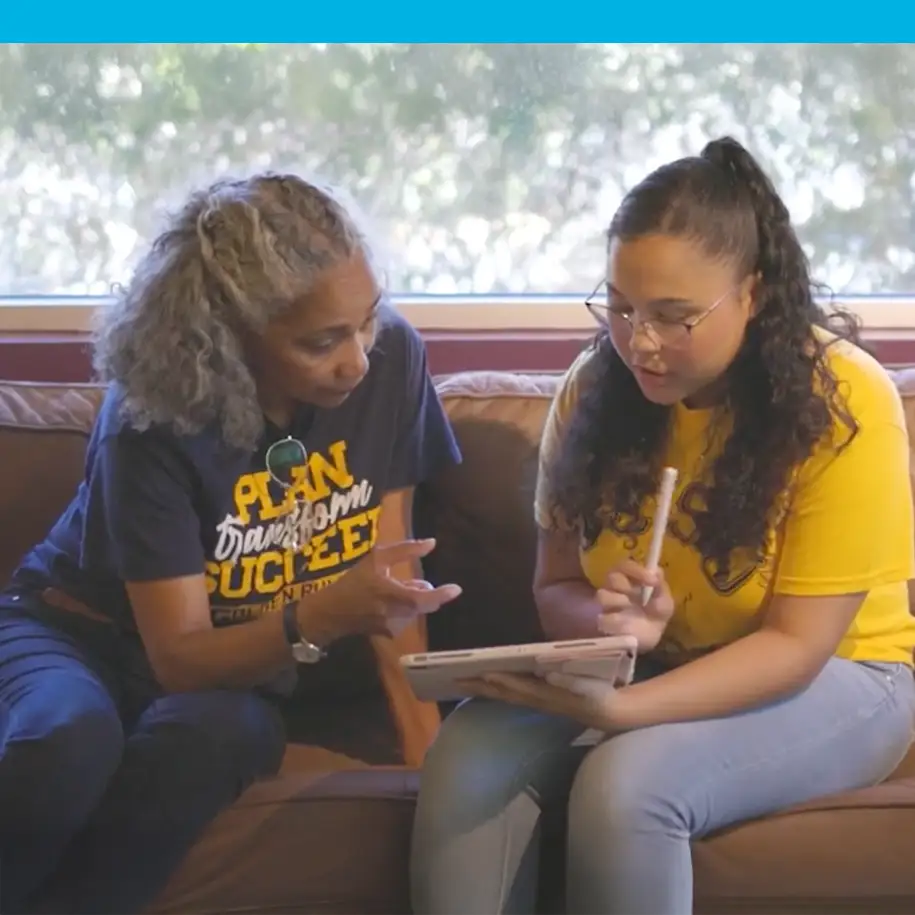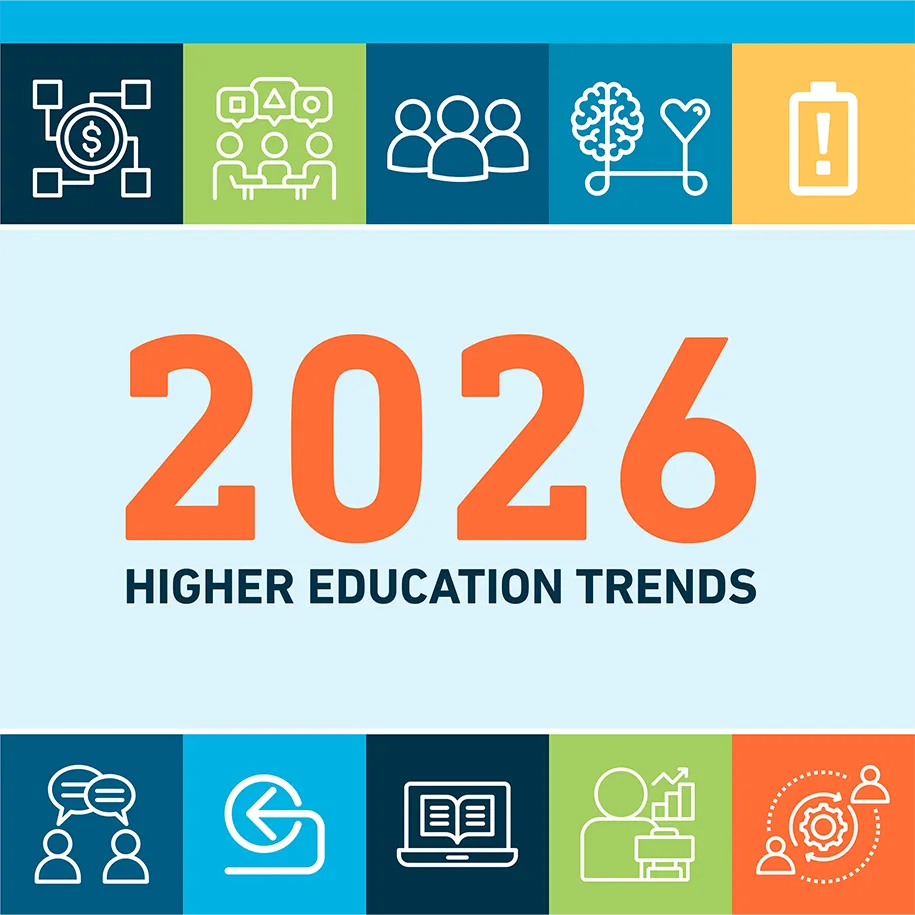
Debunking 7 Coaching Myths: Why student success coaching works for every learner, everywhere
Uncover the truth behind common coaching misconceptions — and learn why evidence-based coaching delivers measurable results for institutions and students alike
In today’s tumultuous higher education landscape, institutions are under more pressure than ever to deliver meaningful student outcomes and a strong return on investment. With shifting demographics emphasizing the need to cater more to adult learners, students of color and other students who have been traditionally left on the sidelines of higher education, it’s clear that support interventions need to keep pace with evolving student needs.
In light of these shifts, institutions face a critical question: Are our current student support strategies truly meeting the needs of all learners?
While traditional services like academic advising, tutoring, counseling and financial aid offices play essential roles, they often focus on discrete problems or transactions — or they silo support, leaving students without one go-to resource to help them solve problems. That’s where student success coaching can help institutions deliver on their promise to support all learners — acting as a central, human touchpoint that connects students to the right resources and builds trust in the process.
A holistic, proactive intervention designed to promote growth, InsideTrack Coaching offers institutions a research-backed approach that meets each student exactly where they are — connecting them to the resources they need and supporting them to achieve their short- and long-term goals. Combining human connection with a tech-enabled approach that allows students to connect when and how they want, coaching builds trust while driving measurable progress across all student populations. But despite its demonstrated success, misconceptions about coaching still persist — and those myths can limit its reach and effectiveness.
In this post, we debunk seven common coaching myths and explain why personalized, learner-centered coaching works across all institution types and learner populations.
Coaching myths, debunked: The truth about student success coaching
Myth #1: "Coaching only works for some students"
The impact of student success coaching isn’t limited to specific student populations. It’s adaptable and impactful for all learners — from traditional undergrads and online students to returning students, adult learners and first-generation students. That’s because coaching meets every individual where they are, offering support that is both personal and practical.
InsideTrack’s coaching methodology is rooted in a learner-centered approach. That means coaches use consistent, proven tools across learner interactions — like holistic assessment and advancement — but tailor each interaction to reflect the student’s unique goals, strengths and challenges. This individualization allows coaching to resonate with learners of all backgrounds and lived experiences. It’s not about fitting students into a one-size-fits-all mold, but about utilizing a proven framework where every student feels seen, supported and capable of success.
The University of Utah wanted to improve holistic support and retention rates across all first-year students. See how they did just that — and closed equity gaps along the way — by embedding holistic coaching into their support model.
Myth #2: "Coaching is just for students who are struggling"
Coaching isn’t a crisis response — it’s a proactive support strategy. While coaches can absolutely help students navigate challenges, coaching is just as valuable when students are doing well. A coach is a student’s greatest cheerleader — celebrating their wins, pointing out their strengths, and helping them accomplish their goals, no matter how small or large. They help learners reflect on what’s working, build confidence and think ahead to what comes next. By encouraging forward momentum and intentional planning, coaching prevents problems before they arise.
Reframing coaching as a success strategy — not just a rescue strategy — helps institutions embed it into the student experience rather than reserving it only for students in distress. The goal is to help every learner thrive, not just survive.
Myth #3: "Coaching is too 'soft' to make a real impact"
Coaching is driven by the power of human connection — but that doesn’t mean it isn’t structured or backed by research. InsideTrack’s proven coaching approach is built on 25 years of research and practice, is rooted in an evidence-based methodology that has been validated by independent research, and is included in the U.S. Department of Education’s What Works Clearinghouse.
InsideTrack Coaches — and all individuals certified in our coaching methodology — are equipped with our coaching framework, including clear steps for driving student impact: develop trusted relationships, use holistic assessment techniques, catalyze advancement toward goals, build motivation, and integrate coaching strategy along the way. It’s a rigorous, replicable framework designed to produce real results.
InsideTrack has worked with more than 350 partners to deliver real impact for the learners they serve. See how coaching has fueled positive student and staff outcomes.
Myth #4: "Coaching takes too long to produce results"
Even when institutions can see the promise in coaching, some worry that it will take years to see tangible results from their investment in coaching. The reality is that coaching programs are designed around partners’ desired outcomes, and they can deliver both short-term impact and long-term value. Some institutions begin seeing results in a single term. Others implement long-range strategies that transform outcomes over time. Both approaches work — and they often work best in-tandem.
Take Illinois Central College (ICC), for example. As they embarked on a multi-year coaching development and training initiative to embed a culture of coaching across their advising team, they also launched a direct retention coaching pilot. While they knew they needed to make long-term changes to sustain impact, they also wanted to see results right away. And they did: amidst staff training, students who received coaching from an InsideTrack coach during the one-year pilot program retained at an 18% higher rate than their non-coached peers.
Learn more about how ICC wove coaching into its student support systems — including launching a re-enrollment coaching campaign that yielded double-digit re-enrollment rates.
Myth #5: "Coaching only addresses academic performance"
Academics are undeniably critical to a student’s success. But they’re just one part of the student experience. Every student is a complex, multi-faceted individual who deserves support that takes their many roles and responsibilities into consideration. Coaching views students holistically, helping them navigate life outside the classroom so that they can thrive inside the classroom.
Whether it’s helping them find reliable childcare, manage their work schedule, secure stable housing, understand financial aid, or, yes, perform well academically, InsideTrack Coaches work with students across all facets of their life. By using a holistic coaching tool called the Focus Wheel, they ensure they’re going beyond academics to understand and connect with the full context of a student’s life. Coaching ultimately helps students better manage and integrate their academic, professional and personal lives — empowering them to continue on their educational pathway and connect to their “why” for doing so.
Myth #6: "Coaching only works face-to-face”
In today’s flexible, digital-first world, coaching doesn’t need to happen in person to be effective. In fact, connecting through multiple channels gives students the flexibility to get help on their terms — and many prefer it that way.
At InsideTrack, coaches connect with students via phone, text, video or email. This multi-channel model makes coaching more accessible for all students, especially online and adult learners, working students and learners in rural or remote locations. By offering support that goes beyond the campus setting, institutions open up the possibility of connecting with more students without sacrificing human connection. A holistic coaching approach works regardless of the channel — building deep relationships with students through consistent, thoughtful and proactive outreach.
This real text exchange between a coach and learner showcases how InsideTrack’s coaching methodology can be effective at helping students build motivation and take strides toward their goals, no matter the medium.
Myth #7: "Coaching programs can’t be scaled”
Because of its relationship-centered foundation, coaching is sometimes seen as an intervention that can’t scale. But the power of coaching can reach far beyond a single campus or caseload. With a nonprofit mission focused not just on directly coaching students, but also on training in-house support staff to become coaches, InsideTrack helps institutions build internal capacity. What’s more, after support staff members are trained in our proven methodology, we can also teach them how to deliver the training themselves. Through this train-the-trainer model, we create a ripple effect, providing consistent, high-impact support that reaches more students without losing the personal connection.
For instance, University of Maryland Global Campus (UMGC) wanted to improve support for their 45,000 stateside undergraduate and graduate students. To do so, UMGC knew they needed to invest in a solution that could replicate and scale, so they partnered with InsideTrack to train their in-house coaches in evidence-based coaching practices — but they didn’t stop there. They also equipped staff with specialized certifications to train and develop their own coaches internally, resulting in all 189 success coaches being trained to deliver InsideTrack’s high-impact methodology across their student body.
Learn more about how InsideTrack helps institutions build capacity to scale their impact.
Coaching works — and helps institutions reimagine what’s possible
Student success coaching is a scalable, research-backed strategy that supports all students — across backgrounds, modalities and institution types. By challenging outdated myths and embracing an intervention that is proven to work, colleges and universities can deliver more consistent, personalized support at scale.
Learn more about how you can help all students thrive through the power of coaching.
Coaching solutions proven to advance all learners
Whether you’re looking to help students persist through completion or to improve career outcomes for job seekers and employees, our holistic coaching solutions can help you achieve meaningful outcomes.



